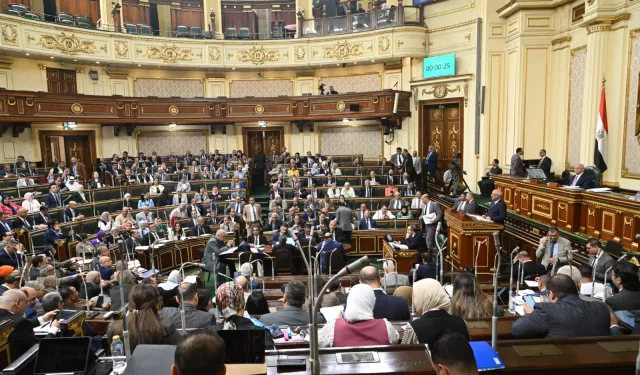Egypt’s House of Representatives postponed debate on amendments to the controversial old rent law on Tuesday, citing a lack of reliable data and unclear government plans for affected tenants, despite giving initial approval in principle.
Speaker Hanafy Gebaly announced an unscheduled session for Wednesday and issued a veiled warning to the government, saying, “I hope the message is clear.”
The delay followed a tense five-hour session in which MPs from across the political spectrum rejected the continuation of discussions. Lawmakers criticized the government for relying on outdated and “speculative” data from the 2017 census.
Khairat Barakat, head of the Central Agency for Public Mobilization and Statistics (CAPMAS), estimated there are 409,276 original tenants over age 60 out of 1.6 million total tenants — a methodology several MPs rejected as imprecise.
MP Diaa El-Din Dawood led the call to halt discussions, citing insufficient data. He was joined by members of Homeland Protectors, Tagammu, the Egyptian Social Democratic Party, Reform and Development, Wafd, Conference, Justice, the Coordination of Youth Parties and Politicians, and independents including MP Ahmed El-Sharkawy.
“This draft law affects millions and cannot move forward without accurate numbers and alternative housing plans,” Dawood said. MPs demanded a credible societal dialogue and government accountability.
Abdel Hadi El-Qasabi, head of the parliamentary bloc of the pro-government Nation’s Future Party, echoed the concerns. “We only seek what benefits the citizen,” he said, requesting a postponement until the government submits clear data. His statement drew applause and chants of “Long live Egypt.”
Gebaly rebuked the government’s approach, saying “it’s clear the government came unprepared. This isn’t the first time laws are submitted without proper studies or community dialogue.”
He noted that in Monday’s session, Parliament asked the government for demographic data and its mitigation strategy for vulnerable tenants — but none was provided.
The Cabinet had submitted draft amendments on June 17 extending the transition period before full liberalization of rental contracts from five to seven years.
